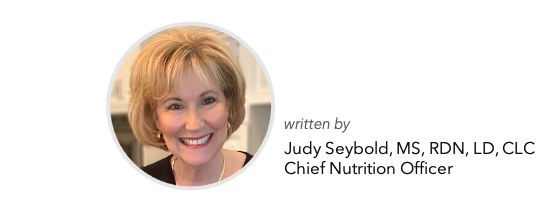Coffee: Friend or Foe?

The alarm goes off at 6:00 every morning. And some days, it’s easier to get out of bed than others. Coffee helps… a lot. The smell, the taste, the ritual and, most importantly, the energy boost, are all good reasons to trudge your way to the coffee pot, stop for a latte, or both. You, and 68 percent of adults in the U.S., are hooked. But is that a good thing?
We seem to have a love/hate relationship with caffeine, given the ongoing debate over how it impacts our wellbeing. On the one hand, coffee is rich in antioxidants. Research shows that people over 100 living in “blue zones”—geographic areas where people have low rates of chronic disease and live longer than anywhere else—drink significant amounts of coffee. On the other hand, research also shows that consuming too much caffeine can result in more than just the jitters.
One clear fact is that caffeine can be addicting, although that doesn’t necessarily mean that if you drink it, you’re an addict. You simply might go through some withdrawal, if you do decide to quit.
Head to our Beverages aisle to discover the caffeinated (or not) options right for you. Start here →
The Body’s Response
Caffeine exaggerates the stress response in our bodies. At the cellular level, it locks the receptor normally used by adenosine—a brain modulator that helps to prevent overstimulation of the nerves. And when that happens, there’s nothing to keep the nervous system from getting too excited.
This may explain why, on the “con” side, caffeine can result in more than just the jitters. Studies have also linked it to inflammation, weight gain, high blood pressure and blood sugar, lower bone density, bloat, sugar cravings, poor sleep, digestive issues, mineral loss, and potentially even heart issues.
On the “pro” side, however, research shows that drinking three or four cups of coffee a day (e.g., 300 to 400 milligrams of caffeine) not only carries little evidence of risk, but carries lots of wellness benefits. Drinking both fully caffeinated and decaffeinated varieties has been linked to improved longevity, mood, memory, and mental functioning, along with a reduced chance of diseases like type 2 diabetes, Parkinson’s, liver cancer, and even Alzheimer’s.
Not the Only Game in Town
With such a wide berth of research, the question of “Is coffee good or bad for you?” comes down to what works best for you and your unique body composition. For some people, caffeine may be perfectly innocuous and have no ill effects whatsoever. For others, it may be less so, depending on health, lifestyle, and risk factors.
Wherever you fall on the spectrum, know that you have choices—and good ones at that. From coffee substitutes and tea, to homemade cocoas, protein drinks, and even water hacked for greater nutritional impact, today’s market offers something tasty and nutritious for everybody. That includes the following:
- Chicory. While chicory root coffee won’t necessarily give you an energy boost, it does mimic the flavor and ritual of coffee, giving off the same aroma and taste. It can also aid digestion. Try “Dandy Blend,” with extracts of dandelion root, chicory and beets, and barley and rye grains.
- Golden Milk. Add ginger and a pinch of black pepper to turmeric and hot milk to make this traditional Indian beverage with roots in the healing practice of Ayurveda. Full of antioxidants, it’s been shown to not only provide the nutritional support necessary for weaning off caffeine entirely, but reduce inflammation and depression.
- Caffeine-free herbal tea. Add peppermint and ginseng, also good for concentration and exercise performance, to your rotation. Rooibos, chai, and fermented teas like kombucha are ideal for helping to manage stress, sleep, and gut health. Adaptogenic varieties like ashwagandha root powder and rhodiola recently have been reported to aid stress and immunity in some small studies.
- Smoothies. Go for a green juice drink packed with high-quality protein, low-sugar produce (think berries and leafy greens), and high-quality fat like avocado or almond butter for better absorption. This will give you a dose of energy without the caffeine crash. Add pomegranate juice with vitamins C, E, and folate for cellular health.
- Hot cocoa. DIY it with 100 percent cacao powder, cinnamon, and plant-based milk. Or use store-bought brands like MUD/WTR. It has a blend of “superfood" ingredients, like medicinal mushrooms, spices, and cocoa for a boost of antioxidants, vitamins and fiber.
- Water. Research shows that even mild dehydration can affect mood and cause fatigue, so anytime you feel tired—whether you’re combatting a lack of caffeine or not—drink a glass of water. Have it hot with lemon upon waking for rehydration and a dose of vitamin C. Add apple cider vinegar and honey for digestion.
If you’re looking to decrease your caffeine consumption, it’s also a good idea to watch for hidden sources, like sodas and energy drinks. Go ahead and have decaffeinated coffee, but in moderation since it still has caffeine (e.g., two milligrams compared to the 95 milligrams in typical cup of regular coffee).
Whether you’re looking to cut back on caffeine or not, you have choices… and don’t need to disrupt your 6:00 a.m. wake-up call with an empty cup.
September 2021
Sources
Science Confirms: Coffee Can Add Years to Your Life
Pros and Cons of the Caffeine Craze
These 11 Caffeine Alternatives Will Give You A Natural Energy Boost